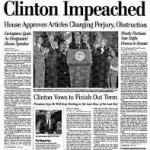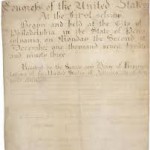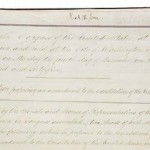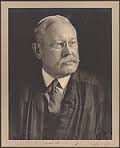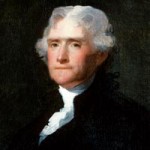The First United States Congress proposed 12 amendments to the Constitution in 1789. The states ratified ten of the proposed amendments: The Bill of Rights. The Fifth Amendment contains five procedural rights. If the government seeks to take someone’s life, liberty or property it must follow the Fifth Amendment’s rules. The Fifth Amendment “No person […]
Constitutional Impeachment: An Alternative to Assassination
The Constitution‘s Impeachment Clause regarding the president and all civil officers of the United States is in Article II and reads: “The President, Vice President and all civil officers of the United States, shall be removed from office on impeachment for, and conviction of, treason, bribery, or other high crimes and misdemeanors.” The Constitution’s Article […]
11th Amendment Overrules the Supreme Court
The Supreme Court interprets the Constitution. If the Court makes an unpopular decision, the recourse is an amendment. This happened with the Eleventh Amendment. During the Revolutionary War a South Carolina merchant, Captain Robert Farquhar sold supplies to the State of Georgia on credit. Following the War, Georgia refused to pay Farquhar asserting that he […]
Constitution’s Origination Clause: Why Revenue Bills Start in the House, Part 3
Part 1 examined the history and purpose of the US Constitution‘s Origination Clause. Part 2 introduced the Senate practice of “gut and replace” that pretends to comply with the Origination Clause. This article explains why “gut and replace” violates the Constitution.[1] The Origination Clause provides that laws for raising revenue[2] must have started in the […]
The Fourteenth Amendment to the US Constitution
While the 13th Amendment abolished slavery, it did nothing regarding the legal status of the former slaves. The 14th Amendment gave them citizenship and did much more. At the end of the American Civil War Congress passed the Civil Rights Act of 1866 granting US citizenship to former slaves. The constitutional authority off Congress to […]
Constitution’s “Origination Clause”: Why Revenue Bills Start in the House, Part 2
For Drafters of the Constitution, a vexing problem was to establish a government that would give life to the philosophies of the Declaration of Independence and meet the practical political considerations of merging diverse states of differing size and traditions into a nation. Among the solutions was the Constitution’s Origination Clause in Article I, Section […]
Constitution’s “Origination Clause”: Why Revenue Bills Start in the House, Part 1
This is Part 1 of a three part series discussing the Constitution’s Origination Clause. Part 2 explains the Senate procedure of “gut and replace”. Part 3 explains why “gut and replace” violates the Constitution. There are overriding principles embodied in the US Constitution, derived from the Declaration of Independence. These principles are beliefs about the […]
The US Constitution and Local Government
Discussions of the US Constitution tend to focus upon the actions of the president, congress and the Supreme Court. While these are consequential, often overlooked is the impact of the Constitution on the actions of local government. Most Americans are aware of the presidential oath of office required of a new president before he begins […]
An Agency Theory of The Constitution as a Power of Attorney
“[W]e must never forget that it is a constitution we are expounding.” Chief Justice John Marshall, McCulloch v. Maryland (1819) Reviewing the 200 years of “expounding” the Constitution has undergone can be quite confounding. There have been hundreds of Supreme Court opinions. Legal scholars, lawyers, and judges engage in continuing debate over the proper method […]
Fourth Amendment Origins: Court Battles Lead to Revolution
“The house of every one is to him as his castle and fortress, as well for his defence against injury and violence as for his repose.” Sir Edward Coke,[1] 1604 “They who can give up essential liberty to obtain a little temporary safety, deserve neither liberty nor safety.” Benjamin Franklin,[2] 1755 “… one of the most essential branches […]
